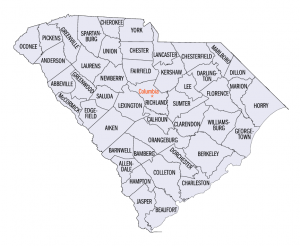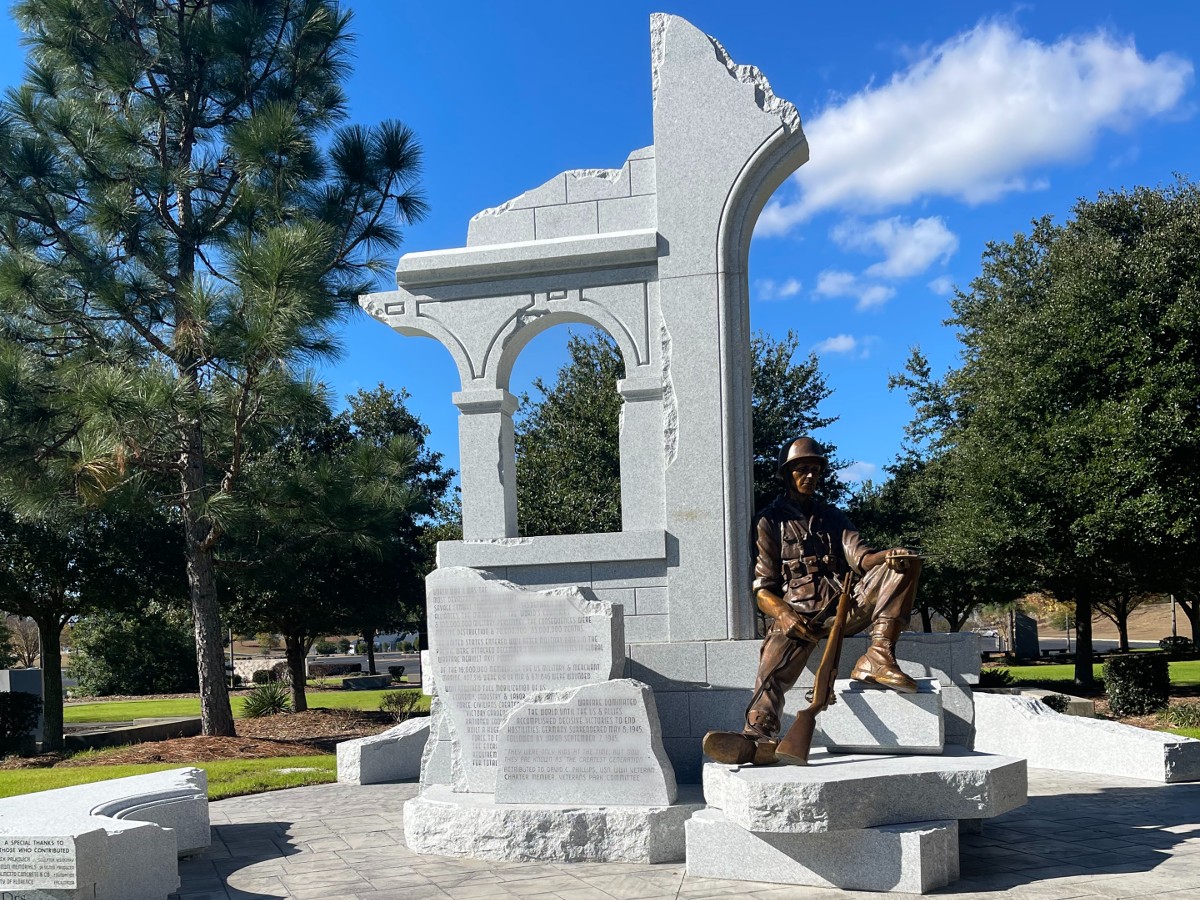STATEHOUSE REPORT | ISSUE 21.48 | DEC. 2, 2022
BIG STORY
By Samantha Connors | It’s taken a few months, but a measure to expand birth control access at pharmacies is finally getting some traction. The South Carolina General Assembly in May passed the Pharmacy Access Act to create an alternative way for women to get access to birth control — directly from pharmacists. Last month, the S.C. Board of Medical Examiners and S.C. Board of Pharmacy issued a long-expected protocol of guidelines that describe exactly how pharmacists have new powers to dispense some forms of hormonal contraceptives.
But just because the protocols are in place, that doesn’t mean most pharmacists know about the new guidelines. Why? Because the agencies have been fiddling with the language of the statute and creating a FAQ page. Holly Beeson, counsel to the office of communications and governmental affairs at the S.C. Department of Labor, Licensing and Regulation (LLR), told Statehouse Report Friday that the department intends to notify pharmacies today, but additional changes could delay the announcement.
Holly Beeson, counsel to the office of communications and governmental affairs at the S.C. Department of Labor, Licensing and Regulation (LLR), told Statehouse Report Friday that the department intends to notify pharmacies today, but additional changes could delay the announcement.
“We want to make sure we get everything right,” Beeson said.
Until November 16, women have had to go to their doctor annually to get prescriptions for contraceptives. But with these new rules in place, pharmacists can dispense contraceptives without an annual doctor visit. Note, however, that the new protocol requires anyone not on birth control to get an initial doctor’s check-up and prescription before any dispensing is done by pharmacists. But after that, they can bypass the doctor’s office.
Gov. Henry McMaster signed the bill into law May 23, which authorized pharmacies that meet the boards’ requirements to administer injectable contraceptives or dispense self-administered hormonal contraceptives, such as birth control pills. Since then, the agencies spent months working out the methods that pharmacies can use to provide the contraceptives to the public.
“Once the requirements as set forth in the protocols are met, pharmacists can dispense,” said Beeson. “It is important to note that in South Carolina, pharmacists may dispense or administer these contraceptives via protocol. This is not the same language as other states, which specify pharmacists can ‘prescribe’ as South Carolina requires each participating pharmacy to have a standing order from a licensed prescribe.”
The law required the agency to issue new rules by November 23. Guidelines were approved and added to the LLR website November 16, Beeson said, but as of December 1, no formal notification had been sent to pharmacies announcing the release of this information.
“Giving women easier access to birth control is a long-term collective goal of so many groups. This is a great step forward,” said Vicki Ringer, director of public affairs for Planned Parenthood South Atlantic. “We know that birth control is safe and effective with fewer side effects than acetaminophen and ibuprofen. So safe, in fact, that contraceptives are sold off the shelf at stores in 120 industrialized countries.”
Participation in the newly-authorized option by pharmacies in South Carolina is voluntary, which means not all pharmacies will offer the service. Check with your local pharmacy to learn more.
Nevertheless, advocates like Ringer say the new law will expand birth control access, particularly in rural areas, where pharmacies may be more easily accessible than doctors’ offices. This law also eliminates the need for an annual doctor’s visit before receiving a prescription, which saves women time and money. Medical professionals, however, highly recommend that women visit their doctor sometime throughout the year for check-ups and screenings.
“Allowing women to obtain birth control without a doctor’s visit and a patient-specific prescription will mean a cost savings for so many women, especially those who are uninsured. For everyone, this is a time saver,” Ringer said.
“We know that many unplanned pregnancies occur between birth control refills. Eliminating that time lapse while women may be waiting for a doctor’s appointment should reduce the number of missed birth control doses and, therefore, reduce unplanned pregnancies.”
The guidelines state that participating pharmacies may not dispense or administer contraceptives 24 months after the initial prescription without verification that the individual has visited a medical practitioner at some point within that time frame.
Each person seeking contraceptives through a participating pharmacy is required to fill out a self-screening risk assessment questionnaire to help pharmacists determine whether it is safe to provide birth control. Returning patients are given the same screening questions every 12 months.
“As more women become aware and comfortable with this new program, we expect it to have positive measurable results,” Ringer said. “When we are able to plan if and when to become parents, an improved quality of life exists for everyone.”
NEWS BRIEFS
Staff reports | President Joe Biden announced Thursday that he wants to have South Carolina be the first primary state for the Democratic Party in 2024 in an effort to bolster diversity. If the move comes to fruition, it would end Iowa’s opening part of the presidential nominations process and reduce New Hampshire’s role.
“We must ensure that voters of color have a voice in choosing our nominee much earlier in the process and throughout the entire early window,” Biden wrote in a letter to the Democratic National Committee.’s Rules and Bylaws Committee. “Black voters in particular have been the backbone of the Democratic Party but have been pushed to the back of the early primary process.”
According to The New York Times, South Carolina helped save Biden’s candidacy two years ago during the Democratic primaries after coming in fourth in Iowa and fifth in New Hampshire, both of which have a higher percentage of white voters.
“Our party should no longer allow caucuses as part of our nominating process,” he continued. Iowa is a caucus state and does not hold a primary election.
Biden encouraged the DNC to make South Carolina the first primary, followed by Nevada, New Hampshire, Georgia and Michigan.
South Carolina is also home to “kingmaker” U.S. Rep. Jim Clyburn, D-S.C., whose support helped Biden in 2020. The state also is home to Jaime Harrison, current chairman of the DNC.
In other news this week:![]() Clyburn elected as House assistant leader for Democrats. Democratic U.S. House members have voted to keep Clyburn as assistant House leader. The announcement comes a day after the historical appointment of U.S. Rep. Hakeem Jeffries, D-N.Y., as the first Black House leader.
Clyburn elected as House assistant leader for Democrats. Democratic U.S. House members have voted to keep Clyburn as assistant House leader. The announcement comes a day after the historical appointment of U.S. Rep. Hakeem Jeffries, D-N.Y., as the first Black House leader.
Final arguments held in redistricting trial. Lawyers this week made final arguments in a federal case over whether South Carolina’s redistricted congressional maps are legal. The issue at hand: Whether the GOP-dominated state legislature diluted Black voting power in a Charleston-area congressional seat. According to the Associated Press, the lawsuit alleges the GOP redrew maps to dilute race in the First Congressional District and give the party an advantage. Democrats flipped the seat in 2018, but lost it narrowly in 2020 before new lines were drawn. “According to a lawsuit filed by the NAACP, the new boundaries unconstitutionally split Black voters in the state’s 1st, 2nd and 5th Districts and packed them all into the 6th District, which already had a majority of African American voters,” the news service reported. A ruling by a panel of three federal judges is expected in the weeks ahead.
Right-wing legislators sue Charleston Co. schools over CRT claims. A group of S.C. House legislators have filed a lawsuit against Charleston County School District over claims that schools in the district are teaching critical race theory. The suit claims the district violated state laws to fund lessons the group says teaches students to discriminate against others.
Haley considering bid for president. Nikki Haley, the former South Carolina governor and U.S. ambassador to the United Nations under former President Donald Trump, says she will decide over the holidays whether to run in the 2024 presidential election. At a Tuesday forum at Clemson University, she said, “I have said I’ve never lost a race. I’m not going to start now. If we decide to get into it, we’ll put 1,000 percent in and we’ll finish it.” Haley now lives in Kiawah Island.
New map details food pantries, resources across South Carolina. Clemson University and S.C. DHEC has been working on an interactive map designed to pinpoint food resources available in every county across the state. The map details where and when pantries are open, as well as other specific information like if any requirements are needed to receive food.
Governor’s office receives Berkeley Co. education petition. Over 2,500 people signed a petition in Berkeley Co. over the school board’s swift replacement of its superintendent. The petition asks the governor to appoint an inspector general to look into the legality of the board’s actions.
Lawsuit targets surveillance of S.C. drivers. The S.C. Public Interest Foundation and a Greenville resident are suing state law enforcement over the use of an “expansive surveillance network” of cameras. According to the lawsuit, law enforcement has no oversight on how to use the information gathered.
LOWCOUNTRY, by Robert Ariail 
Cartoonist Robert Ariail often interprets things a little differently, but always has an interesting take on what’s going on in South Carolina. Love the cartoon? Hate it? What do you think: [email protected].
COMMENTARY
By Andy Brack | South Carolina must not be as great of a place as it used to be – at least when you call government offices. “Business management” was the answer we heard when we called one phone number this week at the S.C. Department of Health and Environmental Control.
“Business management” was the answer we heard when we called one phone number this week at the S.C. Department of Health and Environmental Control.
“Thank you for calling the South Carolina Attorney General’s Office. We are located at …,” said a recording.
Or “Are you looking for a rewarding career with the South Carolina Department of Revenue?” asked another recording.
The only place of 10 agencies that referenced the Palmetto State’s stature was a call to the Statehouse, where yet another recorded message piped: “It’s a great day in South Carolina …”
Ah, finally the familiar sounds of a telephone greeting imposed upon state cabinet agencies in September 2011 by former Gov. Nikki Haley.
Even then, it was derided as cheesy, making what one writer described as something that made phoning a state agency sound pretty grim.
“As every fast food chain has taught us,” Eric Randall wrote in The Atlantic, “there is no sunny greeting that a monotone teenage employee can’t turn into something shockingly ironic. (“Welcome to Good Burger, home of the Good Burger. Can I take your order?”) But still, it feels like there must be something else the state legislature should be doing, especially if it really and truly isn’t a good day today in South Carolina.”
The attempt to frame perceptions with a perky phone greeting was widely panned in Democratic circles, leading two state representatives to say they would file legislation to say state employees couldn’t be forced to give the greeting until the state’s unemployment rate was less than 5% (At the time, it was 10%; now it’s 3%).
“When you answer the phone and say, ‘It’s a great day in South Carolina,’ to be honest with you, it’s a lie,” state Rep. Wendell Gilliard, D-Charleston, said at the time. “South Carolina is being misrepresented by its No. 1 leader, and that’s the governor.”
But the silliness blew away and now it’s a part of the past – except that Haley’s past as a leader is now being dredged up as she flirts with running for president.
Back in April 2021, Haley, who left her job as governor to be the U.S. ambassador to the United Nations in the Trump administration, said she wouldn’t run for president if Donald Trump was running. She told the Associated Press, “I would not run if President Trump ran, and I would talk to him about it. That’s something that we’ll have a conversation about at some point, if that decision is something that has to be made.”
But since the summer, Haley, who now lives on Kiawah Island, has been popping up in the media at key times to remind people that she’s a moderate, viable choice. Just this week, she sent emails to “patriots” in Georgia asking for them to vote in a runoff for Herschel Walker in his bid to win a U.S. Senate seat. Throughout the recent general election campaign, she traveled around the state and country campaigning and endorsing.
And this week, she reminded people she’s still thinking about running for president – even though national polls show Trump with a commanding lead among Republican voters and Haley at, shall we say, the low single digits. (A Winthrop Poll of South Carolina Republicans, however, showed Trump at 45% and Haley close at 37%, which is important because the Palmetto State plays a defining role in the presidential nomination process.)
“We are taking the holidays to kind of look at what the situation is,” Haley said Tuesday at a Clemson forum. “If we decide to get into it, we’ll put 1,000% in, and we’ll finish it.”
Maybe, or perhaps, it’s just political puffery to remain relevant and be considered as a moderate vice presidential candidate – which would be kind of a great day for South Carolina for many.
By the way, we sent an email – and didn’t make a phone call – to the office of Haley’s successor, Gov. Henry McMaster to find out what happened to the “great day” telephone policy. No response.
Andy Brack is editor and publisher of Statehouse Report and the Charleston City Paper. Have a comment? Send to: [email protected].
SPOTLIGHT  The Conservation Voters of South Carolina is a statewide nonprofit organization that fights for the Palmetto State’s air, water, land and energy through political action. The organization is bipartisan, pragmatic and effective.
The Conservation Voters of South Carolina is a statewide nonprofit organization that fights for the Palmetto State’s air, water, land and energy through political action. The organization is bipartisan, pragmatic and effective.
Through scorecards and advocacy at the Statehouse, CVSC holds South Carolina legislators accountable for their votes and actions. As a small organization that operates as a nonprofit and has a political action committee, we have a big impact. Learn more today by clicking any of the links below:
CVSC Legislative Scorecards
CVSC Issues
CVSC News
How to take action with CVSC
FEEDBACK
Have a comment? Send your letters or comments to: [email protected]. Make sure to provide your contact details (name, hometown and phone number for verification. Letters are limited to 150 words.
MYSTERY PHOTO 
A reader sent in this new-ish monument that’s somewhere in South Carolina. Where is it? Bonus points: Tell us what you know about it. Send your guess – and your name and hometown – to [email protected]. Last week’s image, “Another statue,” showed a bronze rendering of “The Boy of the Waxhaws,” a young President Andrew Jackson at Andrew Jackson State Park just north of Lancaster.
Last week’s image, “Another statue,” showed a bronze rendering of “The Boy of the Waxhaws,” a young President Andrew Jackson at Andrew Jackson State Park just north of Lancaster.
Area resident Steve Willis said the identification was pretty easy for folks who live around there: “It was sculpted by Anna Hyatt Huntington, the famous sculptress. She agreed to do this after being contacted by Miss Nancy Crockett, principal of my elementary school, H. R. Rice Elementary.”
George Graf of Palmyra, Va., told us a little about the sculptor: “Anna Vaughn Hyatt Huntington (March 10, 1876 – October 4, 1973) was an American sculptor who was among New York City’s most prominent sculptors in the early 20th century at a time when very few women were successful artists. Huntington married Archer Milton Huntington on March 10, 1923. They founded Brookgreen Gardens near Georgetown, South Carolina, incorporating Brookgreen Plantation, which was started in the late 18th century and was a major antebellum plantation. This property was listed on the National Register of Historic Places in 1978 and designated as a National Historic Landmark District in 1992.”
Others who correctly identified the statue were: Cynthia Craig of Lancaster; Allan Peel of San Antonio, Texas; Deborah Anderson of Chesterfield; Steve Dickey of Anderson; Elizabeth Jones of Columbia; Daniel Prohaska of Summerville; and Barry Wingard of Florence.
>> Send us a mystery picture. If you have a photo that you believe will stump readers, send it along (but make sure to tell us what it is because it may stump us too!) Send to: [email protected] and mark it as a photo submission. Thanks.
350 FACTS
Statehouse Report, founded in 2001 as a weekly legislative forecast that informs readers about what is going to happen in South Carolina politics and policy, is provided to you at no charge every Friday.
We’re proud to offer Statehouse Report for free. For more than a dozen years, we’ve been the go-to place for insightful independent policy and political news and views in the Palmetto State. And we love it as much as you do.
But now, we can use your help. If you’ve been thinking of contributing to Statehouse Report over the years, now would be a great time to contribute as we deal with the crisis. In advance, thank you.
Now you can get a copy of editor and publisher Andy Brack’s We Can Do Better, South Carolina! ($14.99) as a paperback or as a Kindle book ($7.99). . The book of essays offers incisive commentaries by editor and publisher Andy Brack on the American South, the common good, vexing problems for the Palmetto State and interesting South Carolina leaders.
Your email address will not be published.
*
*
This site uses Akismet to reduce spam. Learn how your comment data is processed.

 We Can Do Better, South Carolina! (2019) by editor and publisher Andy Brack offers incisive commentaries on the American South, politics, the common good and interesting South Carolina leaders. Available in paperback ($14.99) or as an e-book ($7.99) for Kindle. Learn more and buy today!
We Can Do Better, South Carolina! (2019) by editor and publisher Andy Brack offers incisive commentaries on the American South, politics, the common good and interesting South Carolina leaders. Available in paperback ($14.99) or as an e-book ($7.99) for Kindle. Learn more and buy today!Click here to read our full weekly issues
Statehouse Report publishes a daily news compilation from more than 40 sources to provide the state’s best news summary every business day.
If you’d like a free trial, click on the image below to send us your email address.
